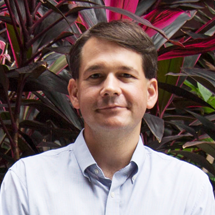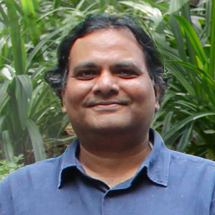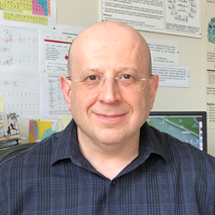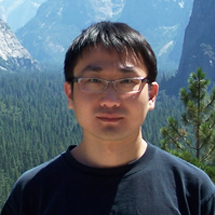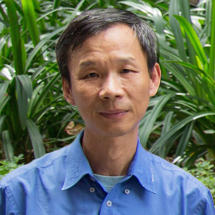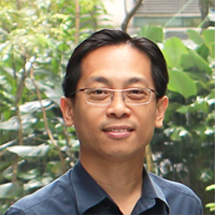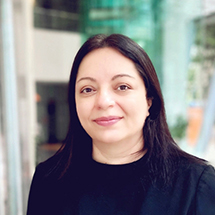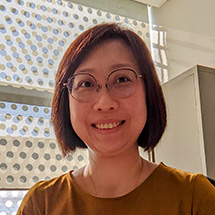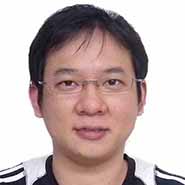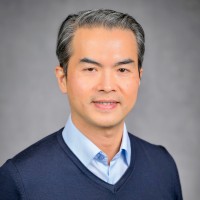Principal Investigators
Biomolecular Sequence to Function Division
Maurer-Stroh Sebastian
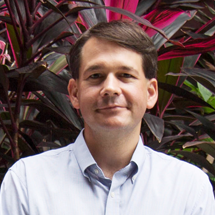 | MAURER-STROH Sebastian Executive Director, Senior Principal Investigator Email: sebastianms@a-star.edu.sg Research Group: Protein Sequence Analysis |
Sebastian Maurer-Stroh studied theoretical biochemistry at the University of Vienna and wrote his master and PhD thesis at the Institute of Molecular Pathology (IMP). After FEBS and Marie Curie fellowships at the VIB-SWITCH lab in Brussels, he has been leading a group of experts in protein sequence analysis as a senior principal investigator in the A*STAR Bioinformatics Institute (BII) since 2007. He is Executive Director of BII since January 2021. His protein function analysis skills are supporting A*STAR’s efforts at the public-private interface and through computational analysis and modelling his team is critically contributing to national and global viral pathogen surveillance. He is also adjunct Professor at the National University of Singapore (NUS) and infectious disease expert for A*STAR ID labs and the National Public Health Laboratory of the Ministry of Health, Singapore.
Research Interests
Sebastian Maurer-Stroh's research interests lies in mapping the uncharted islands in functional protein sequence space. This includes inferring functions for uncharacterized genes/proteins based on remote evolutionary relationships, prediction of the 3-dimensional structure of proteins, identification of biologically important residues and disease-related mutations, as well as developing predictors for short functional motifs in protein sequences.
Group Members
| Principal Scientist | LIMVIPHUVADH Vachiranee |
| Senior Scientist | KENANOV Dimitar |
| Senior Scientist I | MAK Tze Minn Sandy |
| Senior Scientist I | CHIA Jing Ting Charmaine |
| Senior Scientist I | WAILAN Alexander |
| Scientist | CHONG Cheng Shoong Ken |
| Principal Research Officer I | LEE Tze Chuan Raphael |
| Lead Research Officer II | XU Yani Angela |
| Senior Research Officer I | CHEW Yi Hong |
| Senior Research Officer I | NG Ting Ting |
| Research Officer | MAKHEJA Meera |
| PhD Student | ATTIQUE Syed Awais |
Selvarajoo Kumar
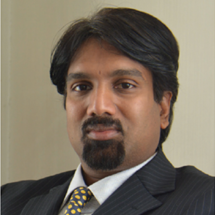 | SELVARAJOO Kumar Senior Principal Investigator Email: kumar_selvarajoo@a-star.edu.sg Research Group: Computational Biology & Omics Lab Lab Website: https://www.cbio-kumar.org/home Research Gate: https://www.researchgate.net/profile/Kumar-Selvarajoo |
Kumar is heading the Computational Biology & Omics laboratory at BII, A*STAR. He is also an adjunct Associate Professor at the Yong Loo Lin School of Medicine, NUS and School of Biological Sciences, NTU. Prior, he was an Associate Professor in Systems Biology at the Institute for Advanced Biosciences, Keio University, Japan. He serves the editorial board of Frontiers in Immunology, Genomics (Elsevier) and Scientific Reports (Nature Research). He has lead teams in Computational Biology, Systems Biology, Bioinformatics and Statistical Genetics. In particular, he has used original ideas, utilizing fundamental physical and statistical laws, to investigate multi-dimensional datasets, deterministic and stochastic modelling of complex protein signaling and metabolic networks. He has authored over 80 scientific articles, largely as corresponding author, which includes a single-authored book on Immuno Systems Biology (Springer) and edited book for the reputable Methods in Molecular Biology series. He has obtained several research grants, and has been an international grant reviewer. He has also presented invited/keynote talks at numerous international conferences. In 2013, 2015 and 2018, he founded and chaired the Symposium on Complex Biodynamics and Networks (cBio).
Research Interests
Computational Biology, Systems Biology, Bioinformatics, Data Analytics, Genomics, Cancer & Immunology, Synthetic Biology
Group Members
| Senior Scientist | YEO Hock Chuan |
| Scientist | RASHID Md Mamunur |
| Senior Research Officer | YUAN Sin YI |
HUBER Roland G.
 | HUBER Roland G. Principal Investigator Email: rghuber@a-star.edu.sg Research Group: Function and Structure of RNA |
Dr. Roland G. Huber studied computational biology at the University of Innsbruck and at Yale University. After obtaining his PhD he commenced postdoctoral research at A*STAR in Singapore and was appointed as principal investigator in 2019. His group at the Bioinformatics Institute is primarily interested in the interplay of structure and function of RNA in gene regulation and infectious disease using statistical modeling, multi-omics data, and molecular simulations to reveal the structures and functional mechanisms of folded RNA and RNA-protein complexes. The group has previously worked on a variety of tropical and emerging infectious diseases including Dengue, Zika, and SARS-CoV-2. Other areas of interest are multi-omics and metagenomic analysis, particularly in the fields of animal health & aquaculture, and human immunology & ageing.
Research Interests
Roland G. Huber’s research focuses on the structure and function of RNA. The key focus in on integrating sequence, structural, and computational methods to elucidate key functional regions of viral and human RNA. RNA adopts a wide diversity of structure, but at the same time exhibits a high degree of flexibility and a plurality of interactions. This makes functional RNA structures challenging to approach with classical biomolecular structure elucidation techniques alone, and calls for new integrative data analysis approaches.
Group Member(s)
| Senior Scientist I | DEFALCO Louis |
| Senior Scientist I | KULKARNI Mandar |
| Research Officer | CHIAM Aryeh Joseph |
Koh Winston
 | KOH Winston Assistant Principal Investigator Email: Winston_Koh@a-star.edu.sg Research Group: Molecular Innovations and AI Integration |
Winston is a bioengineer who obtained his PhD and MS in Bioengineering from Stanford University, after completing his BS in Bioengineering at Imperial College London. After his PhD, Winston joined Molecular Stethoscope, a startup based on his doctoral work, where he worked as a research scientist and scientific consultant.
Research Interests
Returning to Singapore and A*STAR, Winston pursued postdoctoral training in the Molecular Engineering Lab under the leadership of Prof Sydney Brenner. His work in the lab led him to receive the NMRC OF-YIRG award, enabling him to spearhead research on RNA-based liquid biopsies, an emerging field that focuses on non-invasive diagnostic testing, since then Winston's work has been covered applications on prenatal, cancer, and infectious disease diagnostics. He combines liquid biopsies with bioinformatics techniques to achieve accurate and efficient diagnostic outcomes. Alongside his expertise in non-invasive diagnostics, Winston has also delved into machine learning applications for clinical genomics data. He serves as a scientific consultant for local startups, assisting them in operationalizing artificial intelligence for multi-modal genomic datasets, such as single-cell RNA sequencing.
Driven by his commitment to sustainability, medicine, and biological applications, Winston's current research focuses on harnessing the power of generative AI in the field of molecular engineering. The vision is to develop innovative technologies that not only address clinical needs but also contribute to the broader context of sustainability.
Group Members
| Senior Research Officer | POH Si En |
| Lead Research Officer | WONG Kiat Whye |
BREITLING Rainer
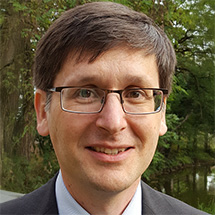 | BREITLING Rainer Senior Principal Scientist Email: rainer_breitling@a-star.edu.sg Research Group: Systems and Synthetic Biology |
Professor Rainer Breitling studied biochemistry at the University of Hannover, Germany, and received his Ph.D. from the Technical University of Munich, Germany, in 2001. He held postdoctoral positions as a bioinformatician at San Diego State University (California, USA) and the University of Glasgow (UK), followed by professorial appointments at the University of Groningen (The Netherlands) and the University of Glasgow. Since September 2012 he has been Professor of Systems Biology at the Manchester Institute of Biotechnology, University of Manchester, UK, currently in an honorary capacity. In January 2025, he joined the Bioinformatics Institute (BII) of A*STAR, where he is responsible for the computational developments underpinning advanced synthetic biology applications.
Biomolecular Structure to Mechanism Division
Verma Chandra S.
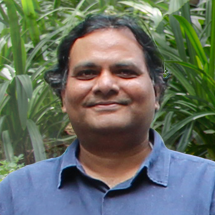 | VERMA Chandra S. (Head) Deputy Director (Research), Senior Principal Scientist III Email: chandra@a-star.edu.sg Research Group: Atomistic Simulations and Design in Biology |
Chandra Verma joined the Bioinformatics Institute (BII) A*STAR, Singapore, in November 2003. He heads the division of Biomolecular Modelling and Design and leads a group that applies physics-based models to understand the links between protein sequence, structure and biological function. His group works closely with experimental laboratories where the hypotheses generated are tested. In addition, the group is also involved in designing peptides and small molecules (through virtual screening) both for interrogating biology as well as for therapeutic purposes. Prior to joining Singapore, he worked at the Structural Biology Laboratory in York, UK. He obtained his undergraduate degree at the Indian Institute of Technology, India and his D. Phil at the University of York. He has cofounded two spinoffs: Sinopsee Therapeutics combines a yeast-based platform and modelling with colleagues in A*STAR at IMCB and BTI to screen for and develop new molecules against targets in oncology and opthalmology. Series A funding is being explored for a novel potential therapeutic (eye drop). & Aplomex (design small molecules, peptides, proteins/enzymes and antibodies).
Group Members
| Principal Scientist | SRINIVASARAGHAVAN Kannan |
| Principal Scientist | LI Jianguo |
| Principal Scientist | NGUYEN Ngoc Minh |
| Senior Scientist (T-up with Aplomex) | ARONICA Pietro |
| Senior Scientist | CHEN Tianqi |
| Scientist | SHIVGAN Aishwary |
| Scientist | LEE Chu Yin Bernadette |
| Research Officer | JAMAL Shamieraah |
| Research Officer | HIGHFIELD Christian |
| Research Officer | NGUYEN Hung Pham |
| Research Officer | SAMUEL Angel |
| PhD Student | YEO Hui Qing |
| PhD Student | LAM Joshua |
| PhD Student | SYME Tom |
Fan Hao
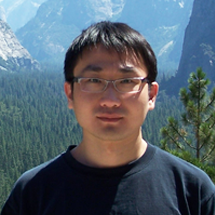 | FAN Hao Senior Principal Investigator Email: fanh@a-star.edu.sg Research Group: Structure-based Ligand Discovery and Design |
Hao Fan received his undergraduate degree in Biological Sciences in University of Science and Technology of China (USTC). He obtained his PhD in Biophysical Chemistry in Dr. Alan Mark’s lab at University of Groningen (RUG). He worked as postdoctoral fellow followed by research scientist in both Dr. Andrej Sali’s lab and Dr. Brian Shoichet’s lab at University of California, San Francisco (UCSF). He was appointed Principal Investigator at the Bioinformatics Institute (BII), A*STAR in 2014. Currently He is Senior Principal Investigator at BII A*STAR, Adjunct Associate Professor at NUS Medicine Synthetic Biology Translational Research Program, and Adjunct Associate Professor at DUKE-NUS Cancer and Stem Cell Biology Program.
Research Interests
The broad goal is to develop computational techniques to effectively and accurately model protein-ligand interactions, the developed methods will be applied to therapeutic targets such as GPCRs, transporters and downstream kinases, to contribute to a better understanding and regulation of biological processes, to the discovery of new ingredients for food and nutrition, chemical probes, and drug leads, and to the development of an in-silico platform for chemical toxicity prediction.
Group Members
| Senior Scientist | VERMA Ravi Kumar |
| Senior Scientist (Collaborator) | LIN Fu |
| Research Scientist (Adjunct) | KRISHNA DEEPAK R.N.V. |
| Senior Scientist | JALADANKI Chaitany`a Kumar |
| Senior Scientist | SUPEKAR Shreyas |
| Post-Doctoral Research Fellow (Collaborator) | HARTONO Yossa Dwi |
| Post-Doctoral Research Fellow (Collaborator) | BARBIERI Alessandro |
| Scientist | WEI Wan |
| Research Officer | RAYAKAR Achal Ajeet |
| PhD Student | BEHN Julian |
| PhD Student (co-supervisor) | WANG Kaichen |
Berezovsky Igor N.
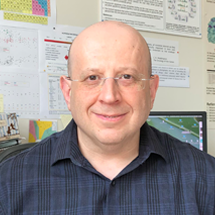 | BEREZOVSKY Igor N. Senior Principal Investigator Email: igorb@a-star.edu.sg Research Group: Physics and Evolution of Biological Macromolecules |
Igor Berezovsky studied physics at the Moscow Engineering Physics Institute (MSc, 1993) and obtained PhD in physics and mathematics from the Moscow Institute of Physics and Technology (1997). He started his scientific career at the Engelhardt Institute of Molecular Biology (Moscow) where he conducted his MSc and PhD research, then worked as a research fellow (until 1998). After postdoctoral researcher at the Weizmann Institute of Science (1999-2002) and the Harvard University (2003-2006), Igor was a senior scientist/group leader at the Bergen Center for Computational Science, University of Bergen (Norway) before joining the Bioinformatics Institute in January 2014.
Group Members
| Senior Scientist | SU Tran-to Chinh |
| Scientist | TEE Wei Ven |
| Scientist | DONG Bingxue |
| Research Officer | RAECHELL |
Bond Peter J.
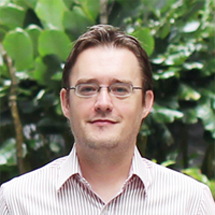 | BOND Peter J. Senior Principal Investigator Email: peterjb@a-star.edu.sg Research Group: Multiscale Simulation, Modelling and Design |
Peter J. Bond is a Senior Principal Investigator of the Multiscale Simulation, Modeling and Design (MSMD) group at the Bioinformatics Institute (BII) A*STAR, Singapore, and Adjunct Associate Professor at the National University of Singapore (NUS). His research interests include host-pathogen interactions, receptor signaling, and virus dynamics. Following his graduation in Biochemistry at the University of Oxford in 2001, Peter moved to the Laboratory of Molecular Biophysics to read for a DPhil, supported by a Wellcome Trust Prize Studentship, and was subsequently awarded an EMBO Long-Term Fellowship hosted at the Max Planck Institute of Biophysics in Frankfurt. In 2010, he became a University Lecturer at the University of Cambridge, before moving to Singapore in late 2013.
Group Members
| Senior Scientist | MARZINEK Jan |
| Senior Scientist | SAMSUDIN Mohd Firdaus |
| Scientist | PALUR Venkata Raghuvamsi |
| Scientist | SOMBOON Kamolrat |
| Scientist | MASIREVIC Srdan |
| PhD Students | HAREED Ayub Mohamed |
Tan Yaw Sing
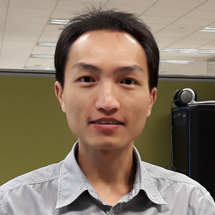 | TAN Yaw Sing Principal Investigator Email: tan_yaw_sing@a-star.edu.sg Research Group: Computational Chemical Biology and Fragment-Based Design |
Tan Yaw Sing graduated with a B.Sc. (Hons) from the National University of Singapore in 2009, with a double major in Chemistry and Life Sciences. Funded by the A*STAR Graduate Scholarship, he proceeded to pursue his postgraduate studies at the University of Cambridge, where he obtained his PhD in Chemistry in 2014. In the same year, he joined Chandra Verma’s group at the Bioinformatics Institute (BII) as a postdoctoral research fellow. He now leads his own group in BII after he was promoted to the position of Assistant Principal Investigator in April 2021.
Research Interests
Dr Tan’s research interests span the diverse fields of computational chemical biology, computer-aided drug design, and computational structural biology. He hopes to transform current strategies for drug discovery and chemical biology by improving the accuracy of binding site prediction, providing new insights into the structure and dynamics of drug targets, and guiding the rational design of therapeutics and chemical tools.
| Scientist | NG Tze Yang Justin |
| Scientist | MODEE Rohit Laxman |
| Research Officer (T-UP with QDX) | CHONG Kian Chee |
| Research Officer | TAN Zi Ting Eunice |
Cellular Image Informatics Division
Lee Hwee Kuan
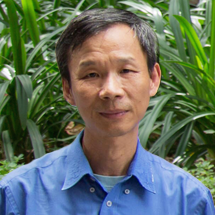 | LEE Hwee Kuan (Head) Deputy Director (Training and Talent) / Senior Principal Scientist Email: leehk@a-star.edu.sg Research Group: Computer Vision and Pattern Discovery |
Dr. Lee Hwee Kuan is a Senior Principal Investigator of the Imaging Informatics division in Bioinformatics Institute. His current research work involves developing of computer vision aglorithms for clinical and biological studies. Dr. Lee obtained his Ph.D. in 2001 in Theoretical Physics from Carnegie Mellon University with a thesis on liquid-liquid phase transitions and quasicrystals. He then held a joint postdoctoral position with Oak Ridge National Laboratory (USA) and University of Georgia where he worked on developing advanced Monte Carlo methods and nano-magnetism. In 2003, with an award from the Japan Society for Promotion of Science, Hwee Kuan moved to Tokyo Metropolitan University where he developed solutions to extremely long time scaled problems and a reweighting method for nonequilibrium systems. In 2005, Dr. Lee returned to Singapore and join Data Storage Institute, A*STAR on investigating novel recording methods such as hard disk recording via magnetic resonance. In 2006, Dr. Lee transferred to BII, A*STAR as Principal Investigator and he leaded the Imaging Informatics Division.
Group Members
| Senior Scientist | LIU Wei |
| Senior Scientist | SINGH Malay |
| Post Doc Research Fellow (Collaborator) | PARK Sojeong |
| Lead Research Officer (T-UP) | SRINIVASA Channarayapatna Arvind |
| Senior Research Officer | GOH Jie Hui Corinna |
| Research Officer | ZHANG Tianyi |
| Research Officer | CHOO Yu Liang |
| Research Officer | SHIMAZAWA Kei |
| Research Officer | HESTER James |
| PhD Student | REN Yu |
Lau Mai Chan
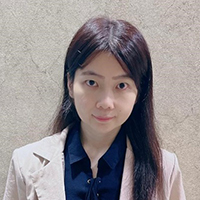 | LAU Mai Chan Senior Scientist Email: Lau_Mai_Chan@a-star.edu.sg Research Group: Advanced Spatial Omics with Quantum and Generative AI |
Mai Chan Lau earned her PhD from the National University of Singapore in 2015, focusing on high-performance GPU research. She began her postdoctoral training at the Singapore Immunology Network (ASTAR), focusing on single-cell immunology bioinformatics. Following this, she moved to Boston, USA, where she leveraged AI and machine learning for Molecular Pathological Epidemiology (MPE) studies, using tissue-based multi-marker technology at Dana-Farber Cancer Institute, Brigham and Women’s Hospital, and Harvard Medical School. In 2021, she returned to Singapore and joined the Institute of Molecular and Cell Biology (ASTAR), expanding her research to spatial transcriptomics and AI. In November 2022, she established her own laboratory at the Bioinformatics Institute (ASTAR), concentrating on advanced spatial multi-omics studies using AI and quantum computing. Concurrently, she leads the Computational Immunology Platform at the Singapore Immunology Network (ASTAR). She served as a program committee member for Clinical Translation of Medical Image Computing & Computer-Assisted Intervention (CLINICCAI) during 2022-2024. She holds an editorial board position for the World Scientific Annual Review of Cancer Immunology journal.
GROUP MEMBERS
| Research officer | TAN Wei Kit |
| Research Officer | CHEONG Jiasheng Isaac |
| Research Officer | ZHANG Qiao Yan Marcia |
Loo Lit Hsin
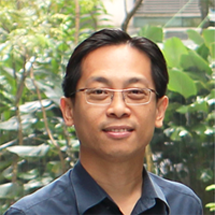 | LOO Lit Hsin Senior Principal Investigator Email: loolh@bii.a-star.edu.sg Research Group: Complex Cellular Phenotype Analysis |
Dr. Loo Lit Hsin is a Senior Principal Investigator at the Bioinformatics Institute (BII), A*STAR, Singapore. He is also an adjunct Assistant Professor at the Department of Pharmacology, Yong Loo Lin School of Medicine, National University of Singapore. Dr. Loo’s background is in computational and systems pharmacology/toxicology. He was the recipient of the Lush Prize – Science Award (2016), Award for Excellence in Postdoctoral Research (2010) and the Alfred Gilman Award (2009) by the University of Texas Southwestern (UTSW) Medical Center, and the Doctoral Award in Mathematical Sciences and Engineering (2005) by Drexel University. Dr. Loo was a postdoctoral fellow in the Bauer Center for Genomics Research at Harvard University (2005), and then in the Department of Pharmacology at the UTSW Medical Center, USA (2005-2010).
Group Members
| Lead Research Officer | LEE Jia Ying Joey |
| Senior Research Officer | KONG Jia Wen Carmen |
| Research Officer | GONZALES Edward Mark |
| PhD Student | YEO Chyi Maey Claresta |
Yu Weimiao
 | YU WeiMiao Principal Scientist Email: yu_weimiao@a-star.edu.sg Research Group: Intelligent Digital and Molecular Pathology |
Dr. Yu Weimiao, an expert in bioimage informatics and computational digital pathology, leads two pioneering groups as a joint Principal Investigator at BII and IMCB. After his Ph.D. in image processing and machine vision from the National University of Singapore, Dr. Yu has been with A*STAR since 2007, advancing to lead the Computational Digital Pathology Lab at BII and the Computational & Molecular Pathology Lab at IMCB. His research, published in top peer reviewed journals like Nature Cell Biology, Nature Materials, Nature Communications, Bioinformatics, focuses on AI-driven computational biomedical image analysis and quantitative imaging informatics.
Dr. Yu’s teams, with over 18 years of experience, excel in developing robust cellular image analysis and molecular diagnosis solutions for clinical application. They integrate diverse methodologies, including signal processing, machine learning, and AI, to create accurate and efficient digital pathology algorithms. Their collaborations with hospitals, biotech, and pharmaceutical companies enhance their expertise in medical algorithm development and validation, aimed at improving patient care. His previous research outcomes were successfully commercialized and made an impact in the medical diagnosis and drug discovery.
An entrepreneur as well, Dr. Yu co-founded A!maginostic Pte. Ltd. to advance the application of AI in clinical diagnostics. He collaborates closely with Singapore General Hospital, National University Hospital, and Tan Tock Seng Hospital, ensuring a seamless R&D pipeline. His world-class joint lab for immunodiagnosis at the tissue level provides intelligent, quantitative imaging analysis solutions, including ImmunoHistoChemistry, Hematoxylin & Eosin, and Multiplex Fluorescence stained images. This integrated platform enables comprehensive profiling of patient immune signatures, aiding in diagnosis, prognosis, and drug response studies.
THE JOINT LAB OF EXCELLENCE IS PARKED AT A*STAR RESEARCH SUPPORT CENTER:
https://www.rsc.a-star.edu.sg/technologyplatforms/scientific-side-menu/scientific-information/histopathology/model-based-digital-pathology-services
Group Members
| Senior Scientist | ONG Kok Haur |
| Scientist | YUAN Chengxiang |
| Scientist | LU Haoda |
| Scientist | SIMONGE Piumi |
| Lead Research Officer | HAO Han |
| Senior Research Officer | HUO Xinmi |
| Senior Research Officer | LI Longjie |
| Research Officer | JIANG Yijing |
| Research Officer | TAN Jun Aun |
| Research Officer | MONZON Eric |
| PhD Student | YOO Sehwan |
Chen Jinmiao
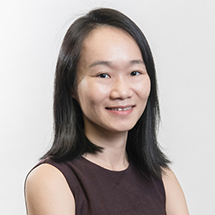 | CHEN Jinmiao Senior Principal Scientist Email: chen_jinmiao@a-star.edu.sg Research Group: Single-Cell Multi/Spatial-Omics and Precision Immunology |
Dr. Jinmiao Chen, a Senior Principal Scientist I at the Bioinformatics Institute (BII), leads cutting-edge research focused on AI-powered single-cell and spatial omics analysis. Her work is instrumental in advancing precision medicine by developing tools and methodologies that make complex biological data more accessible and interpretable for scientists worldwide.
Research Focus
Dr. Chen’s research centers around the integration of artificial intelligence with omics technologies to decipher cellular mechanisms at unprecedented resolution. She has made significant strides in the development of computational tools and omics databases that address the challenges posed by the complexity, scalability, and accessibility of single-cell and spatial omics data.
Achievements and Recognition
Dr. Chen’s contributions have earned her numerous accolades, including being named an EMBO Global Investigator (2024-2027), a Highly Cited Researcher by Clarivate Analytics (2020-2023), and an A*STAR Fellow (2023-2026). Her work is also recognized in the SG 100 Women in Tech initiative.
Collaboration and Impact
Dr. Chen's work stands at the forefront of integrating AI with biological research, and her contributions are poised to make a lasting impact on the field of precision medicine, offering new tools and insights that are accessible to a wide range of researchers.
Beyond her publications and tool development, Dr. Chen is dedicated to sharing her findings and tools with the broader scientific community. The DISCO Data Hub and the ezSingleCell platform established by her lab offer open-access resources for single-cell and spatial omics. These platforms facilitate collaboration, data sharing, and analysis across institutions worldwide. Their global reach ensures that valuable data and tools are accessible to researchers everywhere, accelerating the pace of discovery.
Group Members
| Scientist | XU Hang |
| Scientist | KARIOTIS Sokratis |
| Research Officer | SETHI Raman |
| Research Officer | YE Shuchen |
| PhD Student | CHUAH Samuel |
BioMedical DataHub Division
Neerja Karnani
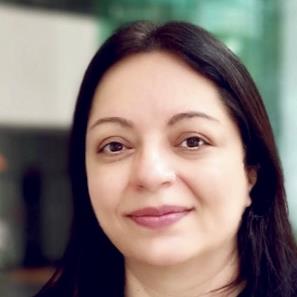 | KARNANI Neerja Head of Clinical Data Engagement, Senior Principal Investigator Email: neerja_karnani@a-star.edu.sg Research Group: Clinical Data Engagement |
Karnani Neerja is a molecular epidemiologist and clinical data scientist with 20 years of experience working with academia, industry and national platforms. She started her research career at University of Virginia, USA, where she contributed to the first functional annotation draft of the human genome (ENCODE consortium). She moved to Singapore in 2013 to join A* STAR’s Singapore Institute for Clinical Sciences (SICS). As the Systems Biology lead at SICS, she developed the multi-omics roadmap for Singapore’s National Birth (GUSTO) and Pre-conception (S-PRESTO) cohorts and identified biomarkers of metabolic and mental health adversities in expecting mothers and their offspring. These findings have been patented and licensed by prominent nutrition industries and are being translated into future interventions. She has also contributed to the research landscape and scientific vision of these cohorts by serving on their executive committees for over 6 years. Beyond the developmental and pregnancy cohorts, she is involved in Singapore National Precision Medicine (NPM) program’s SG10K-Health study and serves on its science and data access committees. To advance her interest in population health analysis and to connect it with the real-world data, she joined A*STAR’s Bioinformatics Institute (BII) in April 2021 as the Head of Clinical Data Engagement. Her team is developing omics based nextgen mobile applications that can provide patient health journey and actionable intervention roadmap for clinicians. Her contributions to the biomedical informatics field were recently highlighted by GovInsider in its special report on ‘Women in GovTech 2021’.
Group Members
| BII Team | |
| Principal Scientist | GROZA Tudor |
| Senior Scientist | LIM Ives Yubin |
| Lead Research Officer | HUAN Jason |
| Research Officer | CHAN Penny |
| Data analysts under joint appointment @SICS | |
| Senior Scientist | GONG Min |
| Senior Scientist | XU Jia |
| Research Officer | TIN Felicia |
| Senior Research Officer | ONG Kelly |
WONG Wing Cheong
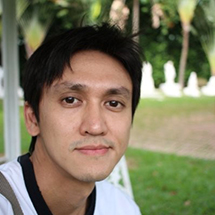 | WONG Wing Cheong Head of BioMedical Data Architecture & Repository Email: wongwc@a-star.edu.sg Research Group: BioMedical Data Architecture & Repository |
Wong Wing Cheong received his undergraduate degree in Computer Engineering from NTU. He joined A*STAR under the joint MSc in Bioinformatics from A*STAR/NUS and subsequently completed his Dr. Rer. Nat (suma cum laude) in Computer Science from Leipzig University. He has been a Principal Investigator with BII since 2014 and is currently the Head/Principal Investigator of the BioMed DAR group since 2019.
Group Members
| Senior Scientist | TAN Ming Zhen |
| Senior Scientist | FUN Max |
| Senior Research Officer | LIM Aloysius |
| Senior Research Officer | KWOK Jia Hui |
| Senior Research Officer | LEE Jiong Yao John |
| Research Officer | DONG Jiahui |
| Research Officer | KOH Ziying |
Woo Xing Yi
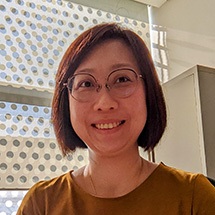 | WOO Xing Yi Head of Research Data Integration Email: woo_xing_yi@a-star.edu.sg Research Group: Research Data Integration |
Xing Yi Woo obtained her PhD in Chemical Engineering from the Joint-PhD program of University of Illinois at Urbana Champaign and National University of Singapore. She did her postdoctoral fellowship in the Genome Institute of Singapore under the mentorship of Professors Edison Liu and Guillaume Bourque. Subsequently, she joined The Jackson Laboratory as a computational scientist and made significant contributions in a wide range of computational projects, including analysis pipeline development, clinical curation and downstream analysis of large-scale datasets of cancer and patient-derived xenografts. She has led analysis projects in cancer resources and consortiums, and contributed to publications in high impact journals, including Nature Genetics, Proceedings of the National Academy of Sciences, Cancer Research and Genome Research.
Group Member
| Scientist | RUANO San Martin Camino |
| Scientist | NG Win Pin |
| Scientist | TAN Qiao Wen |
| Scientist | UMA Sangumathi Kamaraj |
| Research Officer | PHUA Xuan Ming Brandon |
| Research Officer | CHEN Junqi |
| Research Officer | TONG Haopeng |
| Research Officer | CASTILLO Francis Hans Napay |
TAN MING ZHEN
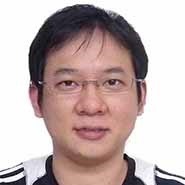 | TAN Ming Zhen Assistant Principal Investigator Email: tan_ming_zhen@a-star.edu.sg Research Group: BioMedical Data Architecture & Repository |
Dr Tan Ming Zhen graduated from the National University of Singapore in 2012 with a B.Eng. (Hons) and B.Soc.Sci (Hons). He then moved on to the NUS Graduate School for Integrative Sciences to pursue his PhD in Engineering, which he obtained in 2017. During his PhD, he worked on several research projects involving mathematical modelling, image processing, and statistics. After completing his PhD, he joined a local FinTech start-up as the Head of Technology, developing the code base for passive investment. In 2021, Dr Tan Ming Zhen joined the Bioinformatics Institute as Assistant Principal Investigator, where he is currently researching data management support and privacy-protection technologies.
Research Interests
Dr Tan has previously worked on the diffeomorphic metric mapping of brain surfaces and volumes, as well as keeping a real-time dashboard for manipulating datasets, visual data exploration tools, and implementing statistical tests. His current area of study is synthetic data and its potential use as a privacy-protection tool. More specifically, he is researching methods for generating high-fidelity synthetic data from real-world data sets, and hopes to improve their potential as surrogates for code development and research.
Group Members
| Senior Principal Scientist | WONG Wing Cheong |
| Senior Scientist | FUN Max |
| Senior Research Officer | LIM Aloysius |
| Senior Research Officer | KWOK Jia Hui |
| Senior Research Officer | LEE Jiong Yao John |
| Research Officer | DONG Jiahui |
| Research Officer | KOH Ziying |
Wang Dennis
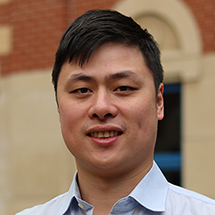 | WANG Dennis Senior Principal Scientist Email: Dennis_Wang@sics.a-star.edu.sg Research Group: Data Science for Population Health |
Dennis Wang is a Senior Principal Scientist at the A*STAR Singapore Institute for Clinical Sciences and Bioinformatics Institute, and also the Academy of Medical Sciences Professor (Chair in Data Science) at Imperial College London. Having worked in both academia and industry, he enjoys mentoring early-career data scientists and clinical researchers wanting to make an impact on human health using data-driven techniques. Prior to the pandemic, he was a researcher at the University of Sheffield, AstraZeneca and Microsoft Research. He obtained his Bachelor of Science in Computer Science and Microbiology from The University of British Columbia, and his MPhil in Computational Biology and PhD in Biostatistics from the University of Cambridge.
Group Member
P Mukkesh Kumar
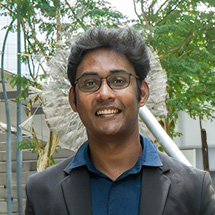 | P Mukkesh KUMAR Lead Research Officer Email: mukkesh_kumar@a-star.edu.sg Research Group: Data Management |
Dr P Mukkesh Kumar is the Head of Data Management Platform at A*STAR’s Bioinformatics Institute (BII) and Singapore Institute for Clinical Sciences (SICS), leading the Multi-modal Data Management, Data Curation & Data Stewardship, Healthcare Data Analytics & Reporting and Healthcare Software Development teams. Dr P Mukkesh Kumar is a PhD alumnus of the NUS Saw Swee Hock School of Public Health, he has developed a predictive care framework for diabetes & maternal health, combining coalitional game theory concepts with machine learning. Forging collaborations with the National University Hospital (NUH) in Value-based Healthcare Strategy, the Early Screening for Gestational Diabetes Mellitus in a Low Risk Population (EaGeR) pilot study conducted at NUH for the real world deployment of early pregnancy GDM predictor AI model. Working in close partnership with Singapore’s Ministry of Health (MOH), Dr P Mukkesh Kumar is developing the core OMOP data curation team at A*STAR to support MOH-TRUST Strategic Research Data Contributors. Dr P Mukkesh Kumar has been mentoring the Data Managers at US Boston Children’s Hospital/Harvard Medical School for multi-centre clinical research studies, building talent and capabilities in the global research ecosystem.
Group Member
| Lead Research Officer | ERWIN Tantoso |
| Senior Research Officer | ANG Li Ting |
| Senior Research Officer | CHOH Mei Kit |
| Senior Research Officer | CHOO Sok Hui Sue |
| Senior Research Officer | HO Xin Ying Cindy |
| Senior Research Officer | ISMAIL Bin Mohd |
| Senior Research Officer | NG Mei Xi Maisie |
| Senior Research Officer | TAN Shuen Lin |
| Senior Research Officer | YE Yingxin Estella |
| Research Officer | PNG Hang |
| Research Officer | TAN Jing Yang |
A*STAR celebrates International Women's Day

From groundbreaking discoveries to cutting-edge research, our researchers are empowering the next generation of female science, technology, engineering and mathematics (STEM) leaders.
Get inspired by our #WomeninSTEM
